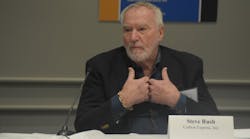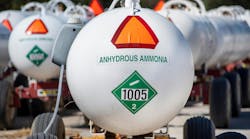Duane Long, chairman of Raleigh NC-based Longistics, told members of the House of Representatives Small Business Committee during a hearing on November 21 that unnecessary changes to federal hours-of-service rules for truck drivers were having serious negative impacts on the industry.
“Simply put, the July 1 hours-of-service rule changes were unnecessary; the regulations adopted in 2003 were working and the administration offered rhetoric but little data to explain why they needed to be changed,” said Long, first vice-chairman of the American Trucking Associations. “Unfortunately, the gap between the administration’s rhetoric and the trucking industry’s operating reality is very wide. These changes are having a very real, and very negative impact on hundreds of thousands of drivers and motor carriers.”
In testimony before the Small Business Committee’s Subcommittee on Contracting and Workforce, Long detailed the impacts, as reported by the American Transportation Research Institute on the rest patterns and productivity of truck drivers and the operational impacts on fleets.
Long noted the impacts were particularly acute for team drivers at Longistics, disrupting the lives of his roster of experienced drivers. “They resent the intrusion of the government on their daily work routine,” he said, “they resent the new restart restrictions and the effect they are having on their ability to make a living.”
Long called on Congress to support the TRUE Safety Act, a bill introduced by Reps Richard Hanna (R-NY), Tom Rice (R-SC) and Michael Michaud (D-ME) to stay the new rules until an independent review can be completed.
“Drivers, motor carriers and researchers have identified and documented a clear and wide disparity from FMCSA’s rhetoric and trucking’s new, more costly operating reality,” Long said. “Congress should postpone the effective date of these new provisions until the Government Accountability Office can objectively evaluate the data and methodology used by FMCSA.”








